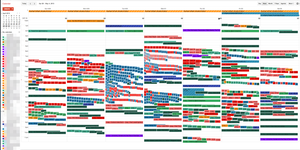Hacking the news is social engineering: Clint Watts
The media is getting played, too
"The American press has focused a disproportionate amount of attention on Russian hacking and cyberattacks, and the reporting itself has only muddied the truth for most in the audience:
-- says Clint Watts, a former FBI special agent and Executive Officer of the Combating Terrorism Center at West Point, in an interview with CJR. Watts is now a senior fellow at the Center for Cyber and Homeland Security at George Washington University, where he analyzes social bots, trolls, and websites that intelligence agencies say are the foot soldiers of Russia's information war.
"The hacking generates information, which promotes Russia's influence campaign, but the end objective is to convince people to choose a candidate based on Russia's preference. This is getting confused, because people hear 'hack' and they think their votes are being changed."
It's a classic page from the Cold War playbook, says Watts, adding that Putin has brought new meaning to the Soviet-Era doctrine of using "the force of politics" rather than "the politics of force."
"The main success of this campaign is not that it took place, but the panic we are in now," Meister adds. "We've lost our self-confidence in our system, in our democracy, in our elections and in our media. That's the biggest success of the Russian campaign."
Continue reading "Hacking the news is social engineering: Clint Watts" »

